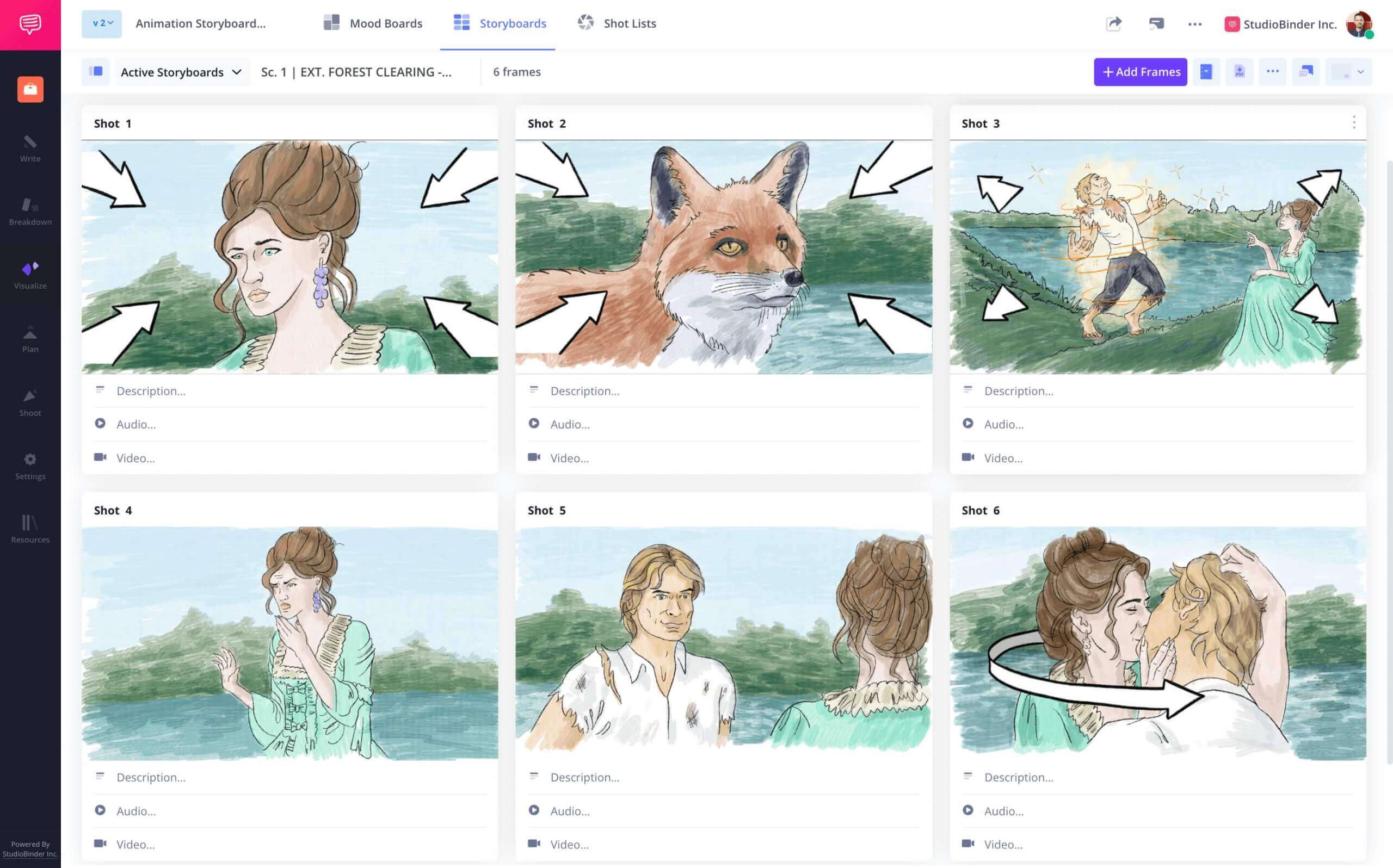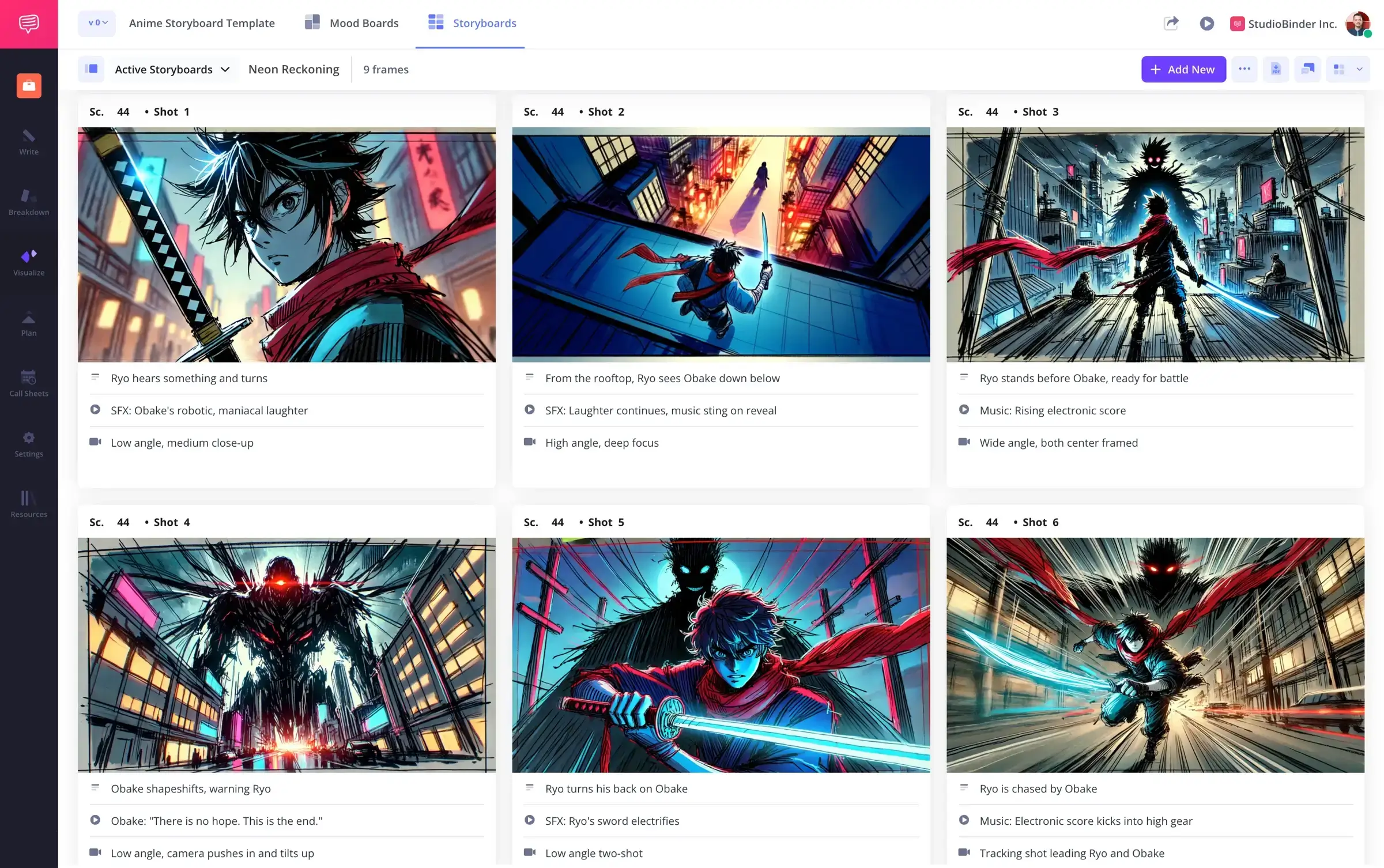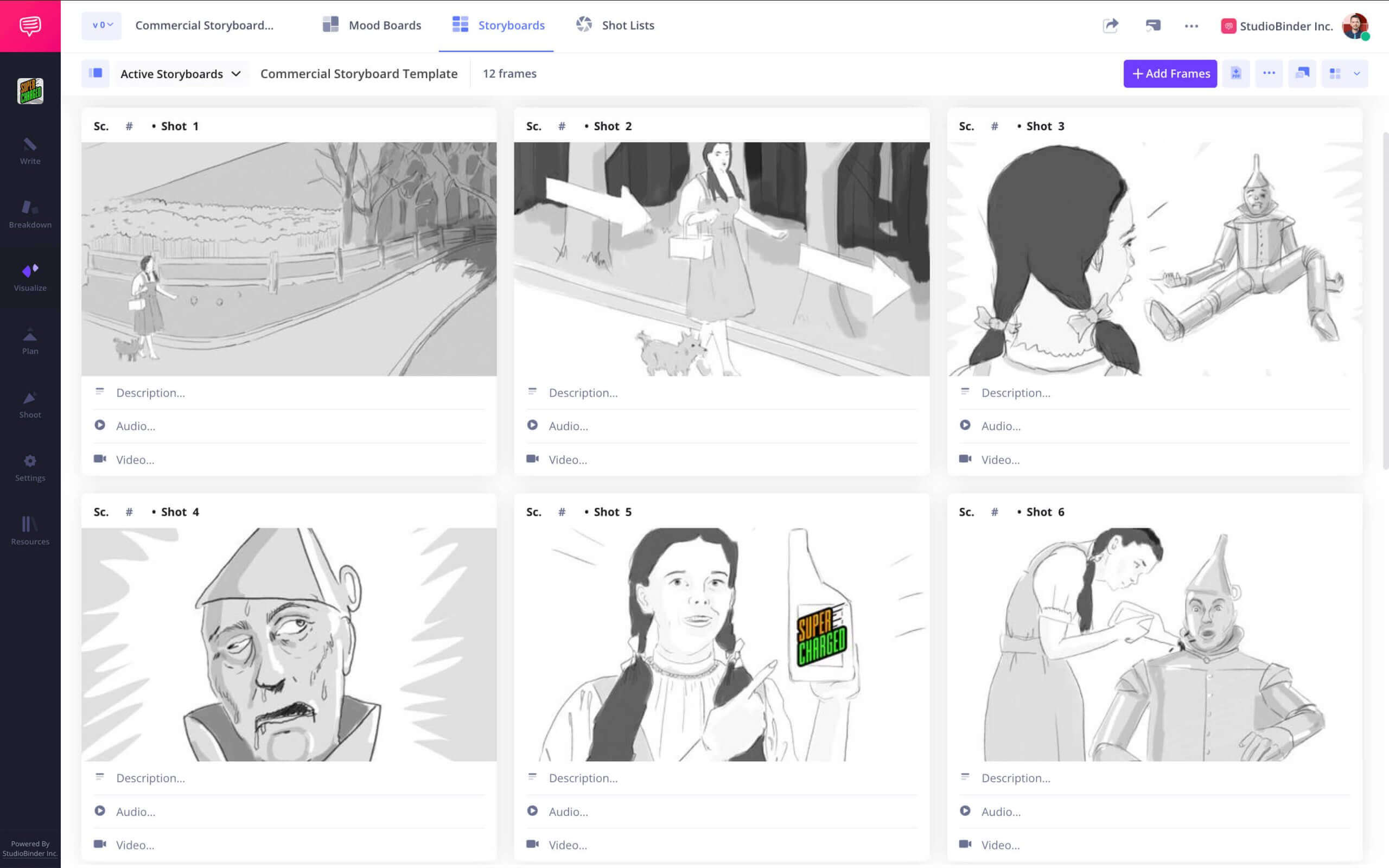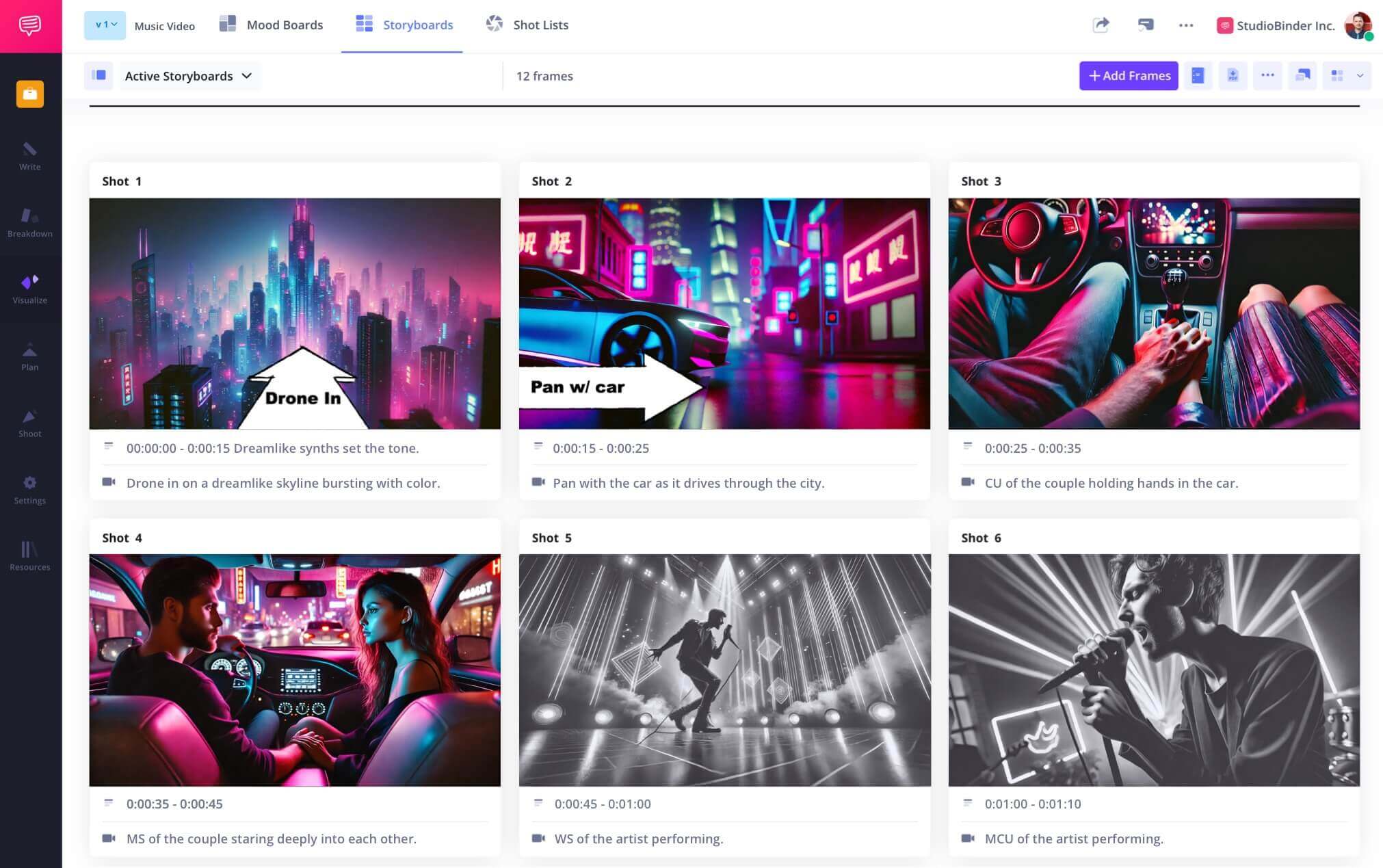Storyboards for Films
Bring your vision to life
StudioBinder is trusted by filmmakers looking to create professional storyboards for films, commercials, and short films using a single seamless platform.
Storyboard Creator
Build your storyboard for film
StudioBinder provides the structure and flexibility to create stunning storyboards for films of any scale. From shorts to feature film narratives, use drag-and-drop tools to visualize your project.
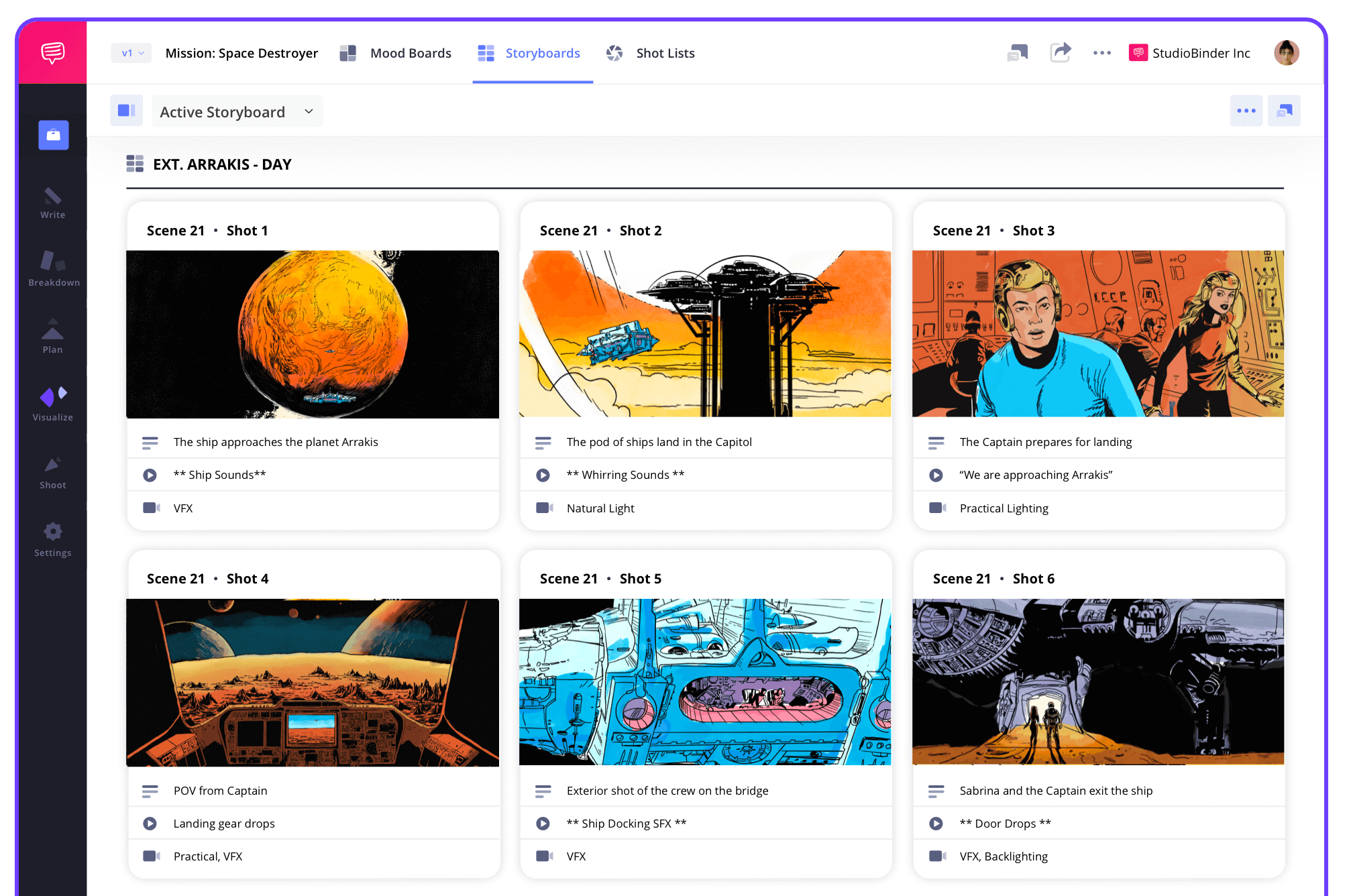
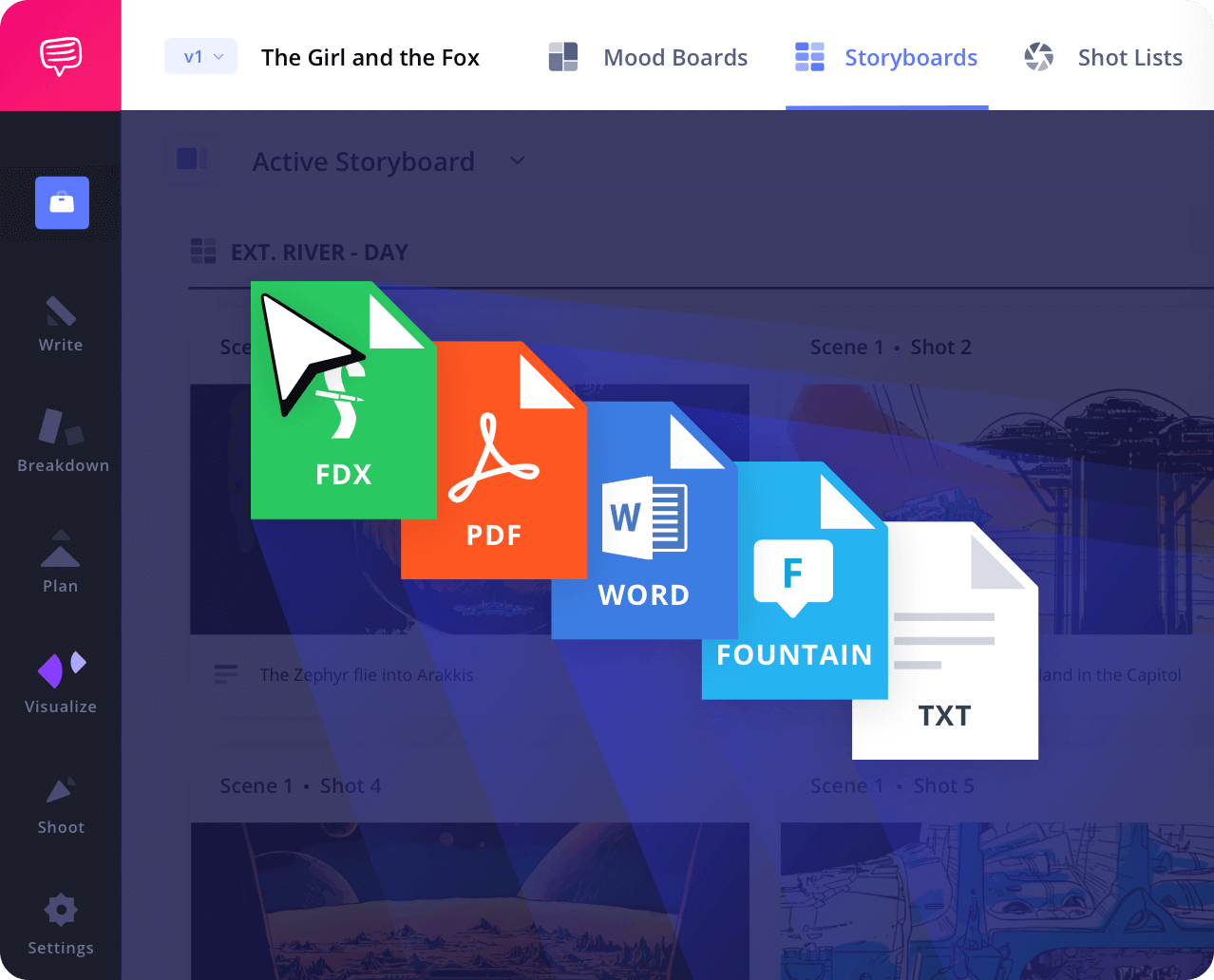
Sync with your script
Generate panels from your screenplay
Import your script to generate storyboard panels for each scene instantly. Whether you're importing a script from Final Draft, Fountain, Word, a PDF, or even a text file. It’s the easiest way to create a storyboard for film that’s synced to your screenplay and ready for collaboration.
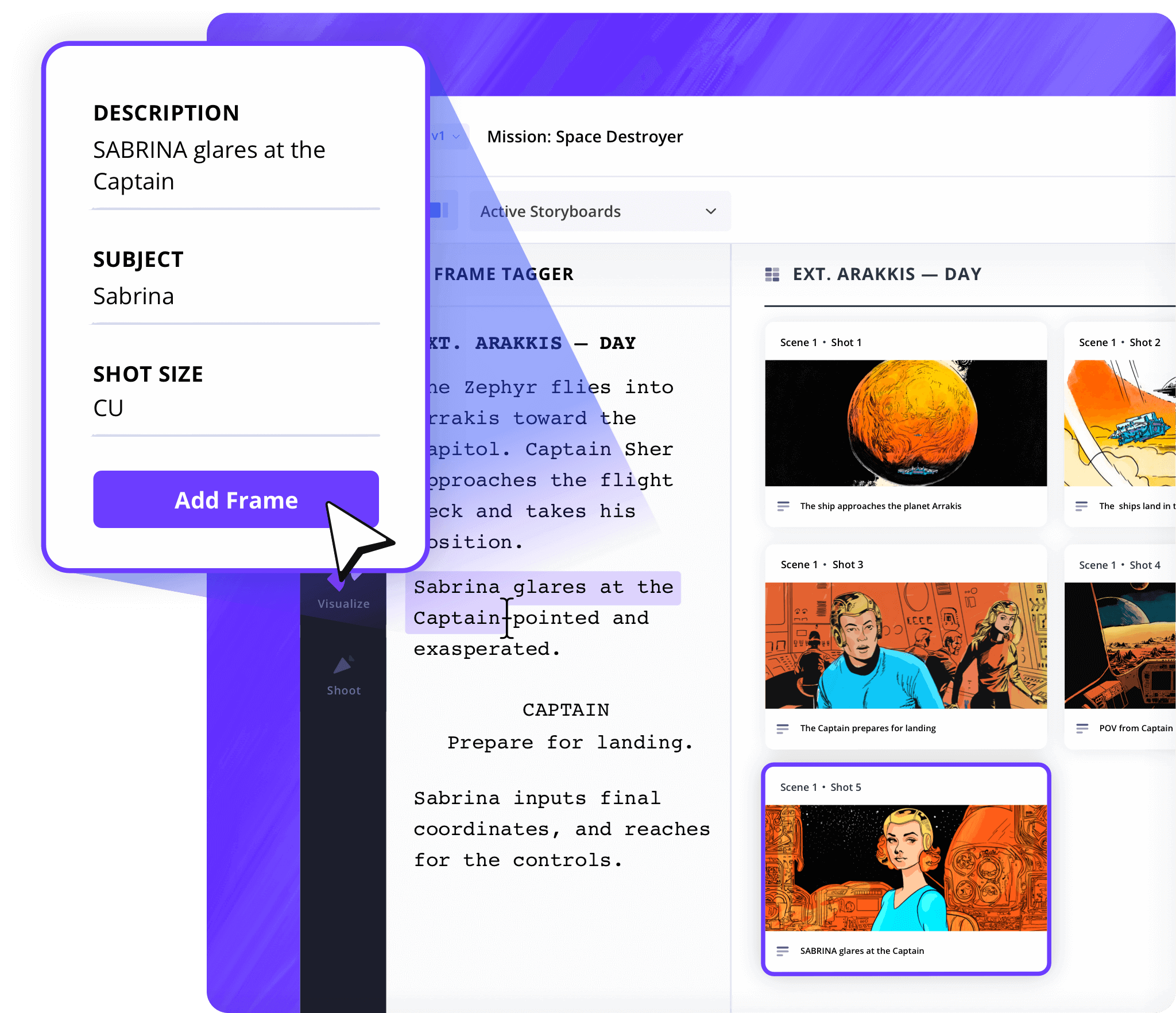
Shot Tagger
Mark key shots in your script
Select lines of action or dialogue to automatically generate panels. This feature simplifies storyboarding for film and ensures every key moment is captured visually in your layout.

Shot Specs
Pick your layout
Build a professional storyboard format for film and choose from industry-standard aspect ratios, layout formats and shot specs.
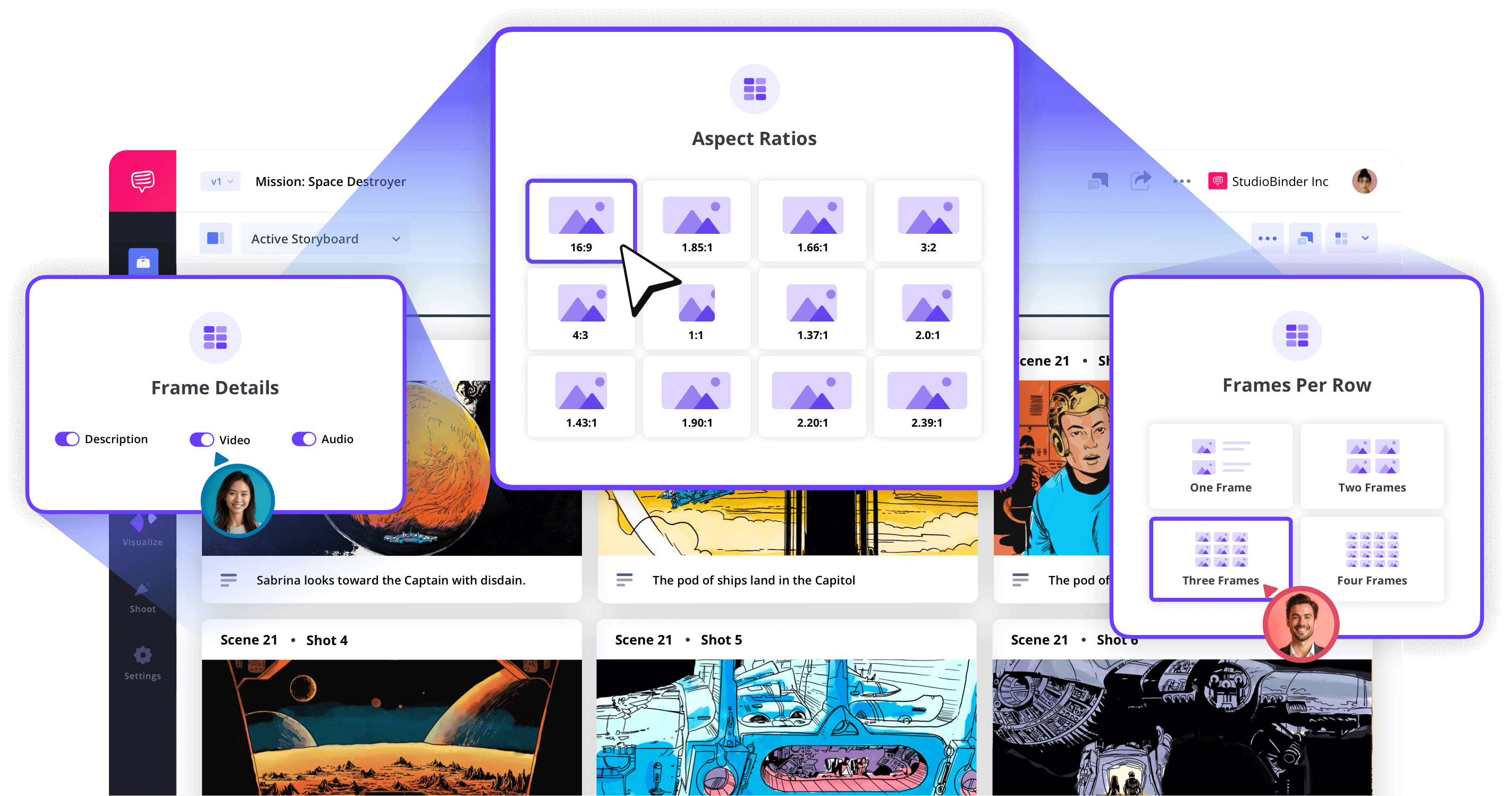
Image Editor
Upload, sketch and annotate shots
Sketch ideas, upload stills, or use reference frames. Then add text, arrows, and shapes to define your movie storyboard clearly and visually. It’s flexible for animation, drama, action, or any genre.
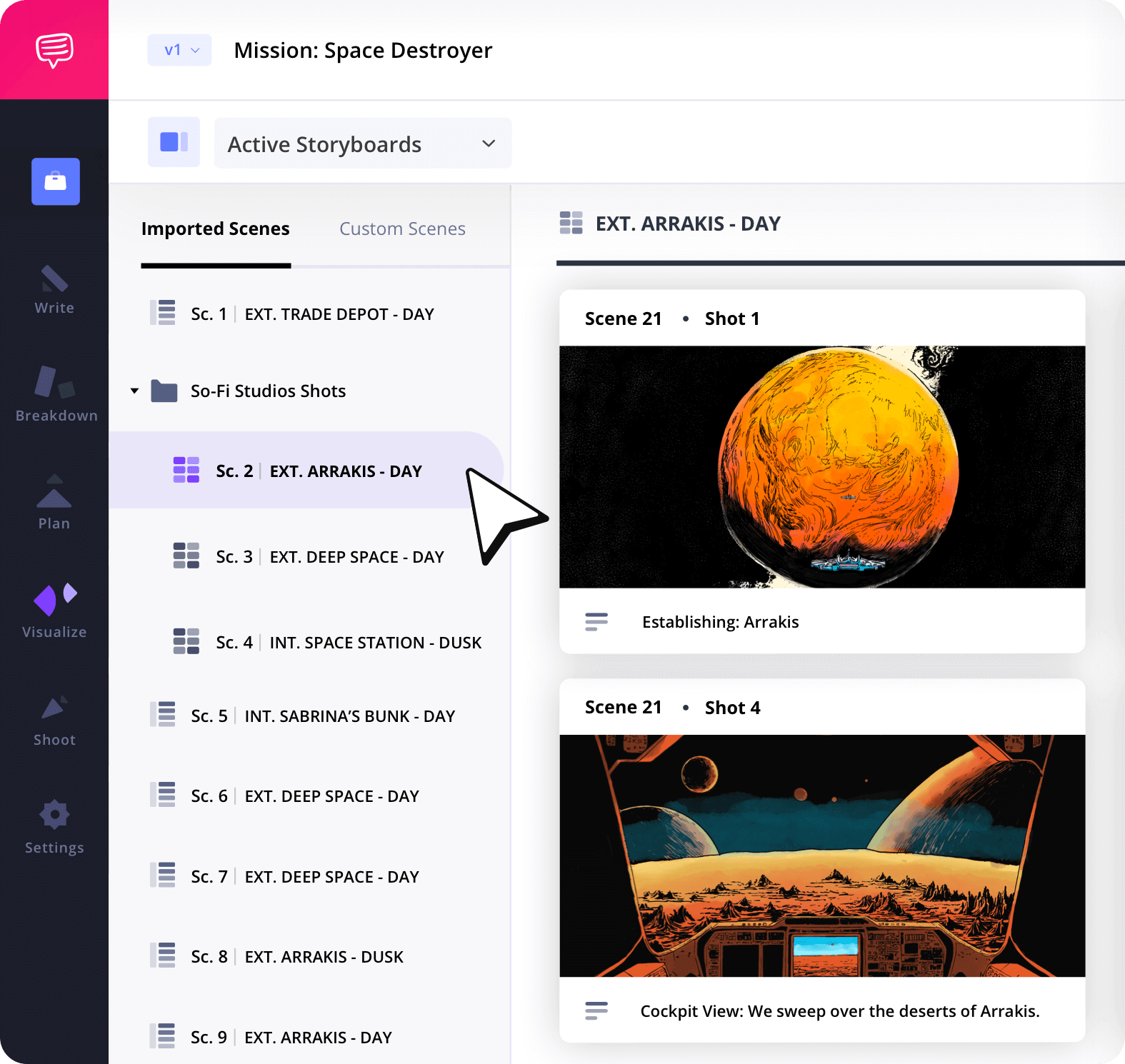
Storyboard Groups
Keep your storyboards organized
Group panels by scene, location, or shoot day. This makes it easier to manage complex projects and keep your film storyboard aligned with the production timeline.
Collaborate
Share and edit storyboards together
Bring collaborators into the process. Editors, DPs, and producers can all access and contribute to your storyboards for films inside a secure, cloud-based environment.
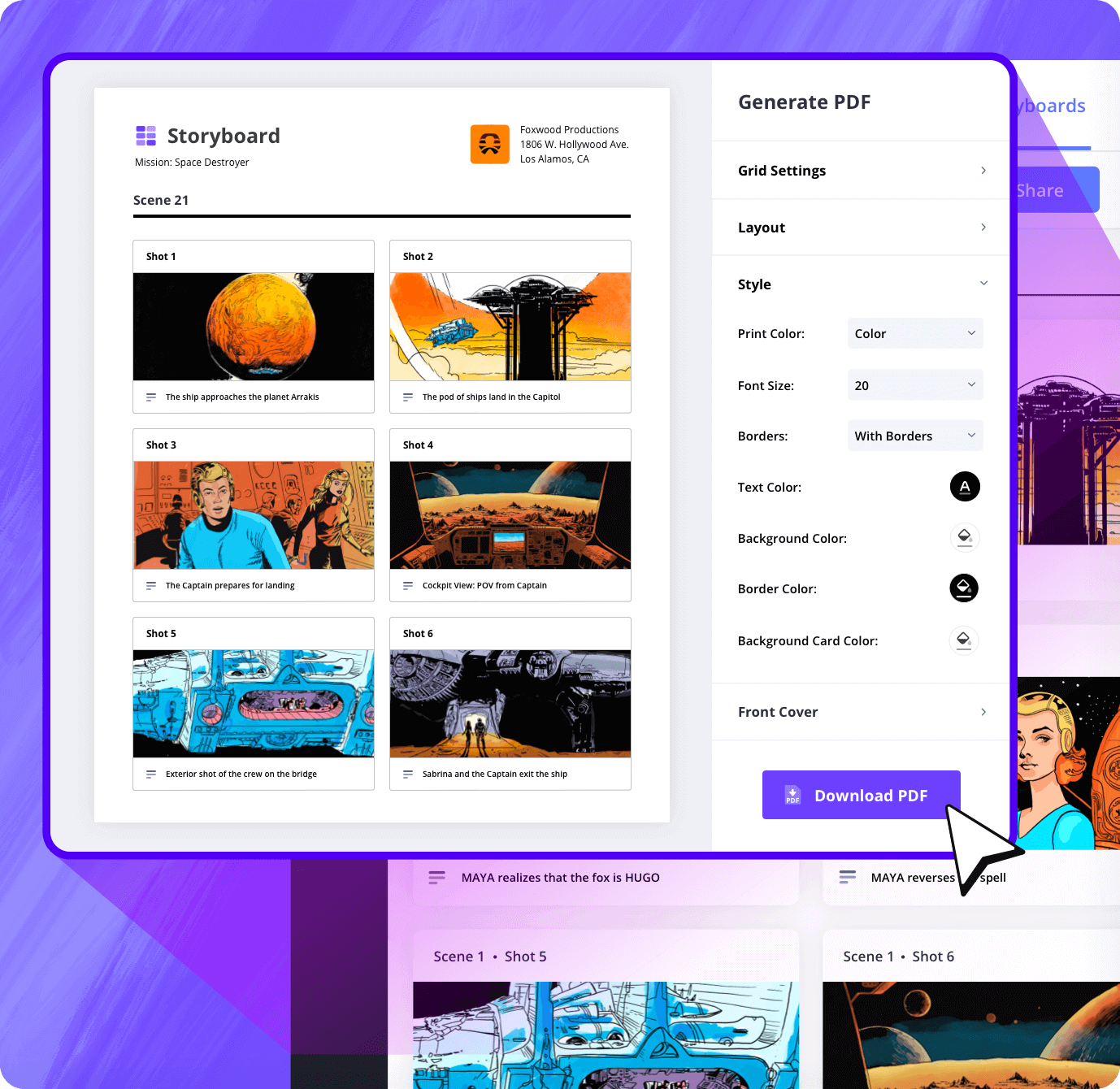
Customization
Generate branded PDFs
Once complete, export your film storyboards as customized PDFs with branded headers, front covers, and watermarks. Ideal for client pitches, production decks, or on-set references.
Sharing
Share online in no time
Share your storyboard for film using live links. Invite team members with edit access and keep everyone on the same page with the most current version.
Explore Features
More storyboard features
Aspect Ratios
Choose an aspect ratio that best suits your project.
Column Layouts
Adjust how many columns your storyboard will have.
Image Library
Reuse storyboard panels from previous projects.
Shot Numbering
Choose between digits, letters, or a custom shot numbering.
Storyboard Archive
Archive old storyboards to keep an accessible history.
Color-Code Shots
Label or call out specialty shots with colors.

What are the 8 steps in storyboarding?
Open StudioBinder on your browser.
Click on the Storyboards tab on the project homepage.
Choose to either import a script or create a storyboard manually.
Name the storyboard, set the aspect ratio, and select the number of frames.
Add an image to each frame from the Media Library or upload new images.
Edit your images with a suite of tools, including filters, text, and arrows.
Enter details, including the scene number, description, and notes.
Create a custom PDF, send a view-only link, or invite collaborators for feedback.
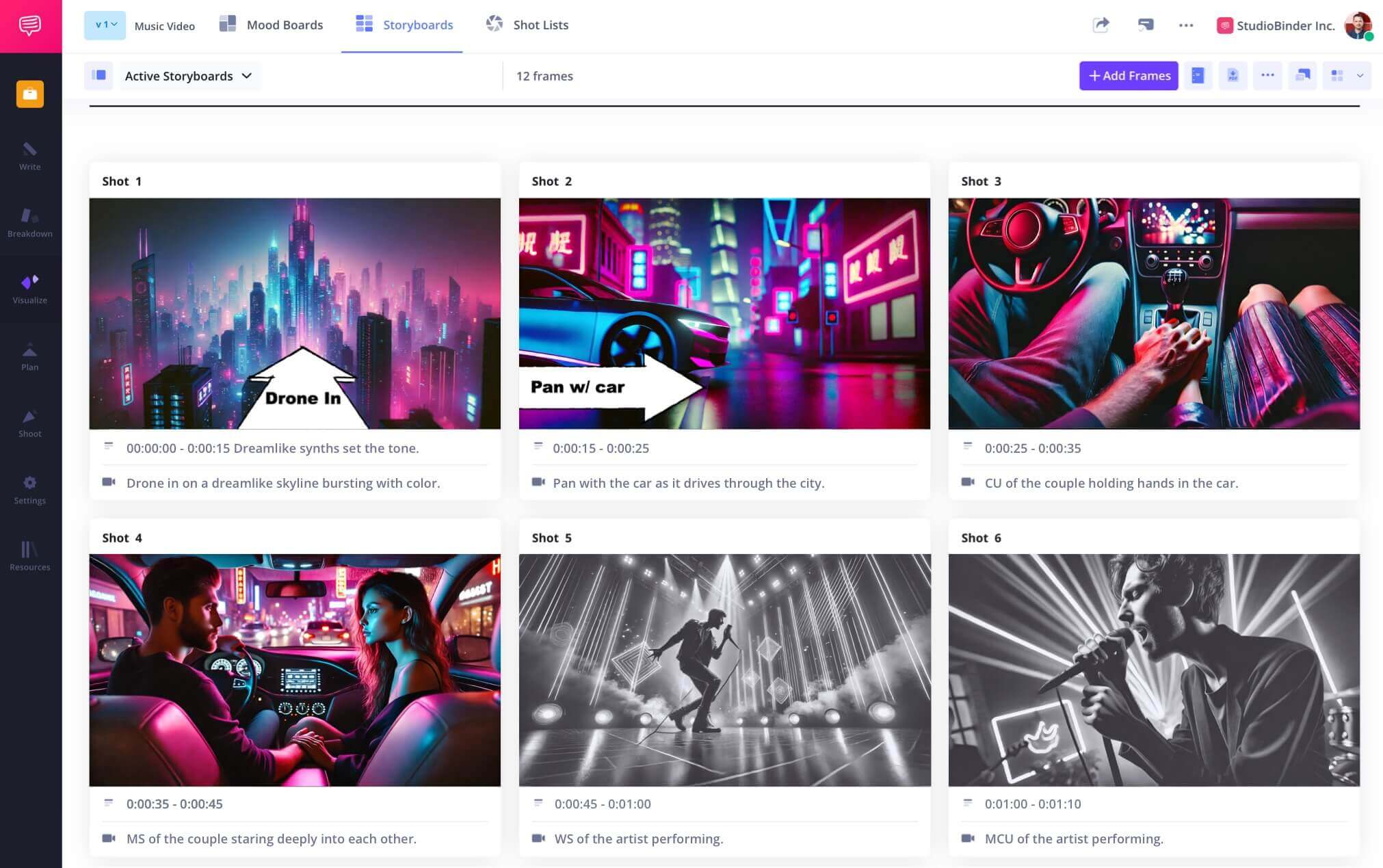
Frequently Asked Questions
Your questions, answered
Storyboarding for a short film is the same process as any other visual project. The storyboard is a visual and pre-planned representation of your project. Here are the basic steps:
- Read your script and visualize your shots
- Using a blank storyboard template, dedicate each frame to a single shot
- Add images, either hand-drawn or digitally created
- Clarify the context for each shot with a short written description
- Add arrows and text to indicate character or camera movements
Storyboard illustrations don't need to be works of art. So, if you find yourself with stick figure characters, it's not the end of the world. As long as the basic shot and composition are clear, your skills as a storyboard artist are secondary. Remember, you don't always have to draw storyboards; you can borrow images from other projects or use AI image generators.
For lower-budget projects, the director or perhaps the cinematographer will create the storyboards themselves. When the budget can afford one, a professional Storyboard Artist can be hired.
No, storyboards aren't necessary. Many filmmakers at all experience levels forego storyboarding because they don't want to feel restricted, or they know that filmmaking is an organic process and that they should be open to changes. However, other filmmakers rely on storyboards to give them a head start on the imagery so that their time on set isn't spent on shot choice.
A storyboard is used for a director to first lay down their visual ideas for a project. But then they all serve as a reference point for the rest of the crew. Then, when it's time to start shooting, everyone knows the plan of attack.
Customers
Trusted by the Best
Modernizing production workflows at renowned studios worldwide.
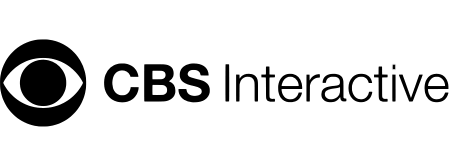



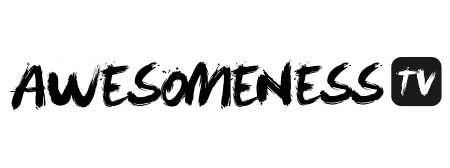





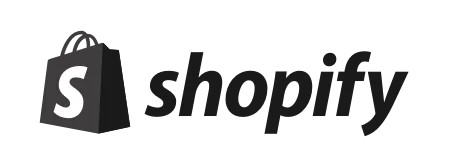

Today’s productions use StudioBinder to streamline their process, and collaborate on better content together.
"I can be a part of the conversation and see when someone finishes a task."
Watch Testimonial ➜
"StudioBinder makes pre-production that much quicker for out team."
Watch Testimonial ➜
"Call sheet confirmations have instantly made our life that much easier."
Watch Testimonial ➜
